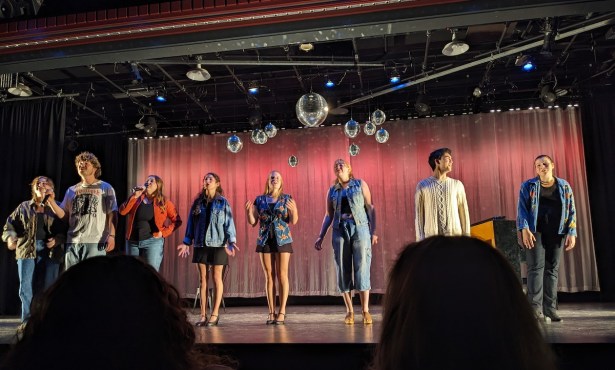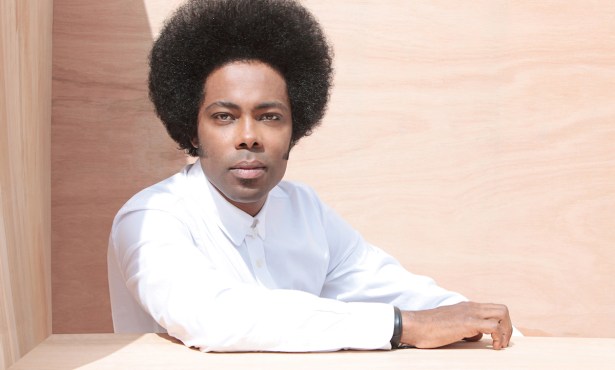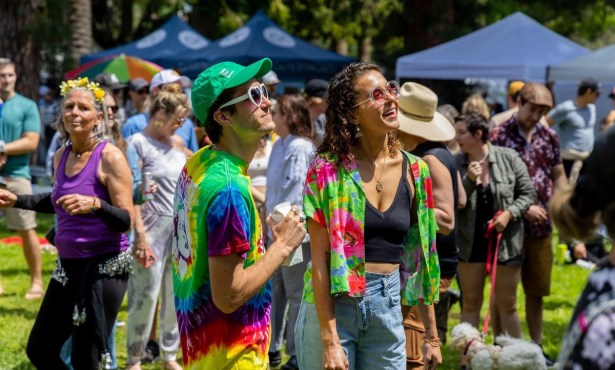UCSB Lecture Series Fosters the Holocaust Narrative
Transmitting History

U.S. Poet Laureate Charles Simic-who was born in Belgrade, Serbia, in 1938-once wrote of the Holocaust, “Human indifference to suffering and the pleasure of inflicting it are common; the only surprise is that we have no convincing explanation for it. : Why some people choose to do evil, while others follow their conscience, is something for which no one has a good answer.” On October 23, the Department of Germanic, Slavic, and Semitic Studies at UCSB will inaugurate a lecture series intended to explore the nature of the Holocaust, and the social, political, literary, and philosophical reverberations it has had in the 60 years since its culmination. The series is named after retired Santa Barbara surgeon George Wittenstein, a German Catholic who demonstrably followed his conscience during the war. Wittenstein was a founding member of a nonviolent resistance group known as the White Rose. Comprised of a handful of Catholic students and a professor of philosophy at the University of Munich, the group distributed leaflets decrying the war and the Nazis’ persecution and murder of Jews. The White Rose was the only group of its kind to materialize in Nazi Germany, and its members had no illusions about the possible effect of their efforts: they expected to be executed. And so six of them were on February 22, 1943, after Gestapo officials got wind of the movement. (Among the six beheaded was Sophie Scholl, 21, subject of the film Sophie Scholl: The Final Days and the book Sophie Scholl and the White Rose.)
Wittenstein managed to evade the Gestapo by joining the Italian front of the war as a medic. In 1960, he moved to Santa Barbara, where he began a private practice as a thoracic cardiovascular surgeon. Now 87, Wittenstein is retired and lives in Hope Ranch. He has written eloquently about his participation in the White Rose, as well as the Bavarian Action for Freedom, another resistance group, which staged a small putsch in Bavaria toward the end of the war. In an essay published at historyplace.com, Wittenstein unsentimentally describes the genesis of the White Rose, ending by quoting from the last leaflet the group distributed: “The horrible blood bath [the Nazis] have caused throughout Europe has opened the eyes of [Germans]. : The name of Germany will be dishonored forever, lest German youth finally rise” to topple the Nazis.
“The main goal of the series is to preserve the memory of the White Rose and the Bavarian Action for Freedom, and to preserve and continue the legacy of their members,” said Elisabeth Weber, who chairs UCSB’s Department of Germanic, Slavic, and Semitic Studies. Weber pointed out that most of the members of the White Rose were students, and said, “We want our students to be inspired by their story, and to become engaged, informed, wide-awake citizens.”
The first lecture in the series, titled Shoah Literature: The Universal Aspect, will examine testimonies of Holocaust survivors and trace the evolution of Holocaust literature. It will be given by Geoffrey Hartman, a professor emeritus of English and comparative literature at Yale and a survivor of the Kindertransport, a rescue mission that brought 10,000 German Jewish children to England nine months before the outbreak of the war. Further lectures in the series will take place in January and April.
The George Wittenstein lecture series comes at a time when the generation that survived and witnessed the Holocaust is passing on. One of the questions the Holocaust now provokes is how the lived experience of one generation becomes a narrative, transmitted to another generation. “We are at a turning point,” Weber said. “People who experienced the Holocaust firsthand may be alive for a few more years, but we have to make sure their story is carried into the future.”
4•1•1
Geoffrey Hartman’s free public lecture, Shoah Literature: The Universal Aspect, will be held on Tuesday, October 23, at 8 p.m. in UCSB’s Theater and Dance Building, Room 1701. For more information, call 893-2131. The schedule of future lectures in the series can be found at gss.ucsb.edu.



